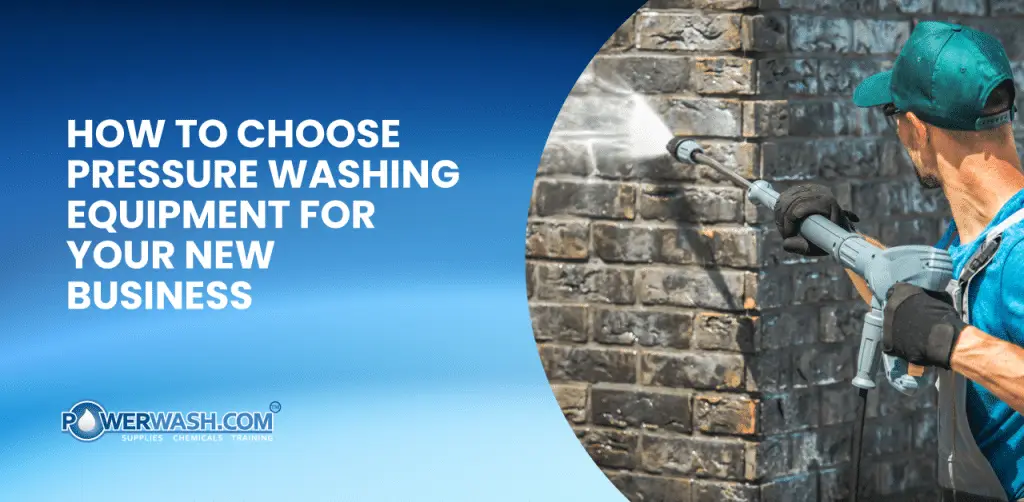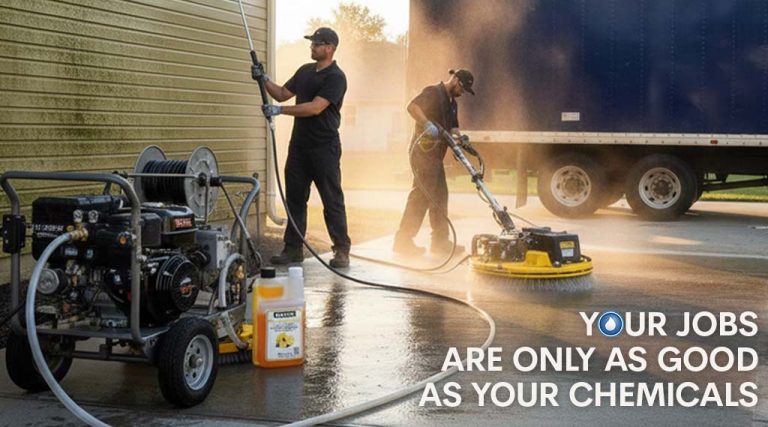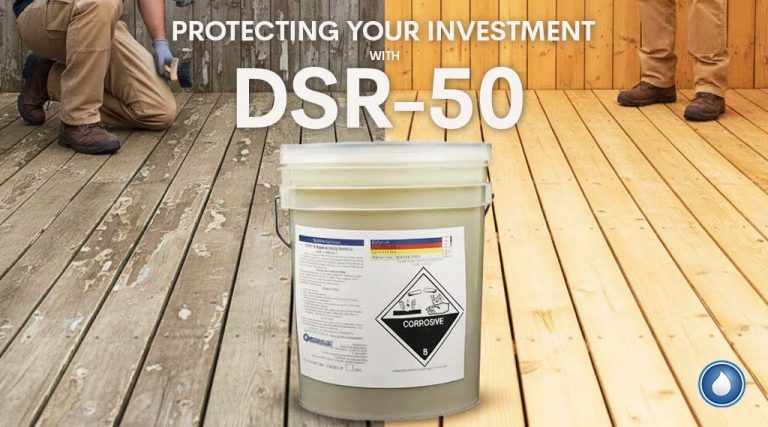When it comes to choosing equipment for your new pressure washing business, there are a variety of options. Different jobs will require various tools, and different-sized jobs will call for other types of equipment. This is hardly a great revelation, but it’s essential to know that you won’t be able to just buy one hose, one jet, and one tank!
What equipment do you need for a pressure washing business?
You’ll need to choose equipment that is both reliable and easy to use when you are starting in the power washing business. Gas pressure washers are the best when starting out, and don’t be worried about by psi ratings that are only ½ the story, gallons per minute must be considered also and are more important.
Gallons per Minute VS Pounds per Square Inch
GPM (gallons per square inch) PSI and GPM are two important measures of a pressure washer’s cleaning capacity. First, it helps to understand what PSI and GPM are:
- PSI (Pounds per Square Inch): Measures the amount of water pressure the machine produces.
- GPM (Gallons per Minute): Measures the amount of water flow the machine is capable of.
Together, these two specs determine the rate at which a pressure washer can clean a given surface. Contractors and professional cleaners typically pay close attention to the GPM of a machine, as they often use powerful detergents in their pressure washers. These detergents effectively dissolve dirt and grime, lifting debris from the surface. As such, a higher GPM rating usually results in better cleaning performance.
The pressure washer’s PSI is not immediately important when starting your business. A pressure washer having a high PSI doesn’t mean it is better at getting the job done. The pressure tips you attach to the wand are far more critical regarding effectiveness. The general rule of thumb is that the smaller the degree of the tip, the higher the water pressure. A J-Rod can be an essential tool to have on your equipment list.
Gas VS Electric Powered Pressure Washers
There are a few key considerations to keep in mind when deciding between a gas and electric powered pressure washer. First, consider the power needs of the project at hand. If you will be power washing a large area or something that is particularly dirty, then a gas power washer is likely your best bet. They tend to have more power and mobility than electric models. However, if you are power washing something small or relatively clean, an electric power washer will likely do the job just fine.
Another key consideration is portability. Gas power washers are generally more bulky and difficult to move around than electric models. If you need a power washer that you can easily move from one location to another, then an electric model is probably your best option. Finally, consider the cost of each type of power washer. Gas power washers tend to be more expensive than electric models, so if cost is a factor, then that may help you make your decision. Ultimately, the best power washer for you depends on your specific needs and preferences.
That said, PowerWash.com recommends selecting a gas-powered pressure washer for starting your pressure washing business. They are reliable and provide enough power for you to get the job done. They also don’t have unsightly cords running everywhere. Anyone starting out will need a 50 to 100 gallon buffer tank that can support higher GPMs. The buffer tank, already filled, lets you use a higher GPM than a water hose, until you run out of water. The water hose constantly fills the tank to extend the amount of time. You can learn more about tanks here: When Should You Use a Holding Tank.
You’ll also need to purchase other parts like large tanks, tips, wands, downstream injectors, and even safety gear. These should all be purchased when starting out in the power washing business. Finally, it’s always good to start out with a solid foundation of training. Check out our vast training library, including on-demand videos and in-person training opportunities, to get started.
Commercial Pressure Washing Equipment VS Equipment from Hardware Stores
When power washers are considering where to buy their equipment, they should weigh the pros and cons of commercial power washing equipment versus equipment from big box hardware stores. While usually more expensive, commercial power washing equipment will generally last longer and have greater reliability than equipment bought from a big box store, saving you money in the long run. In addition commercial equipment providers, like PowerWash.com, usually carry a wider selection of power washing equipment and supplies, and the staff is generally more knowledgeable about the products. Hardware stores, on the other hand, typically carry products that are less expensive and more accessible, but have lower grade power washer equipment that has lower durability.
If the goal is to scale and grow your power washing business, it is recommended to begin with acquiring commercial grade equipment. Ultimately, power washers should decide what is most important to them when choosing where to purchase their equipment, and it may depend on your particular clients and your business goals. Read this article to learn more about scaling a power washing business from a cheap to a professional power washer.
Key Takeaways:
- Gas-powered pressure washers work best when starting a business.
- Go with a pressure washer that emits 2.5 – 4 GPM.
- PSI and GPM are two important measures of a pressure washer’s cleaning capacity.
- Contractors and professional cleaners typically pay close attention to the GPM of a machine, as they often use powerful detergents in their pressure washers.
- Hardware stores are typically less expensive and more accessible to power washing professionals.
Get Support From Our Expert Team
Navigating the high-pressure (yes, pun intended) game of pressure washing can be difficult, but the good news is there are plenty of friendly experts willing to help you out. There’s no better a supportive community of pressure washers than the team at PowerWash.com. Visit our site today and check out the Youtube channel for the latest industry news, helpful hints and tips, and the latest products to get the job done right!




